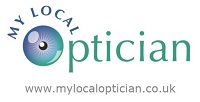EYECARE FOR CHILDREN
Eye Examinations for Children
Why should my child have an eye examination?
Children are highly adaptable, often unaware or unable to explain the difficulties with their vision. They very rarely complain about their vision. Up to 1 million children in the UK currently have an undetected vision problem. However, poor eyesight can have a significant effect on a child’s ability to learn and on their behaviour. Some examples of actions that suggest a possible problem with their vision are not seeming to recognize familiar faces, erratic eye movements, an eye that turns differently to the other, poking or rubbing the eyes, poor attention at school, sitting too close to the television.
As the eyes and its support processing is actively developing during our formative school years, many childhood eye complaints can be successfully treated if they are picked up early.
When should I have my child’s eyesight checked?
All babies will have their eyes checked within 72 hours of birth and then at about 6 weeks of age by the GP or health visitor. Visually, there are some key milestones that follow within the first year of life and parents are given a Personal Child Health Record, to help track development, such as:
6 weeks – follow a colourful or interesting object with their eyes.
2-3 months – starts to reach for things they see
3-5 months – starts to mimic facial expressions
6-12 months – looks at objects both near and far and is interested in pictures
At this stage, any issues should be discussed with your GP.
It is often advisable for children to have their vision checked more formally, around when they start school. This can be carried out at the opticians practice. Most eye tests for children are free on the NHS. Toddlers and young children do not need to be able to read or recognize letters in order for their eyes to be assessed.
How else can I look after my child’s eyes?
Get outdoors – regular exercise and play ensures the eyes get a good supply of oxygen and develop well.
Eat healthily and keep hydrated – good nutrition and hydration helps development.
Protect your child’s eyes – the majority of preventable sun-damage occurs during childhood. Always encourage sun-safety such as never looking directly into the sun and wearing good quality sunglasses (they should always carry the “CE” quality mark and the British Standard BS EN 1836:2005).
Technology – advise regular breaks from activities that require intense focus for prolonged periods of time.
Please click on the link below to download an information leaflet. Childrens Eyecare Leaflet






